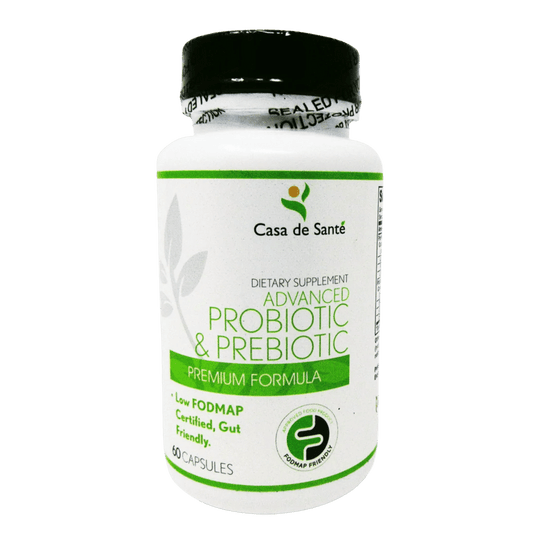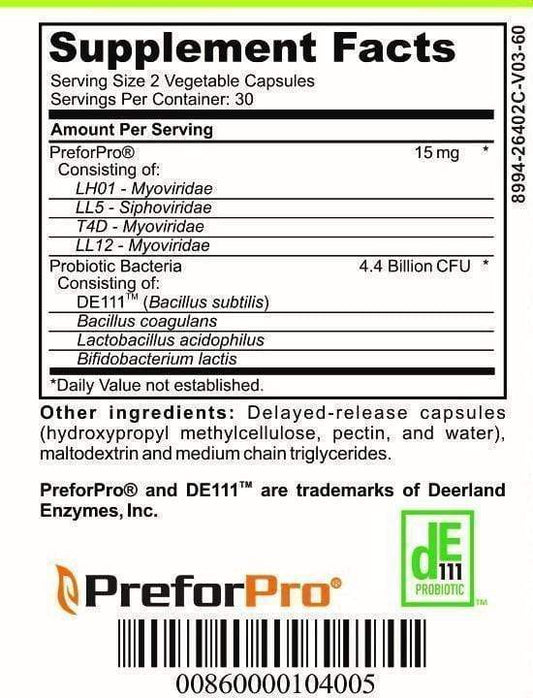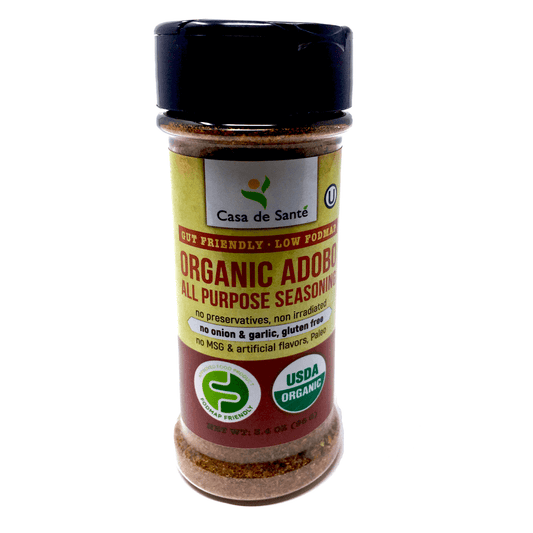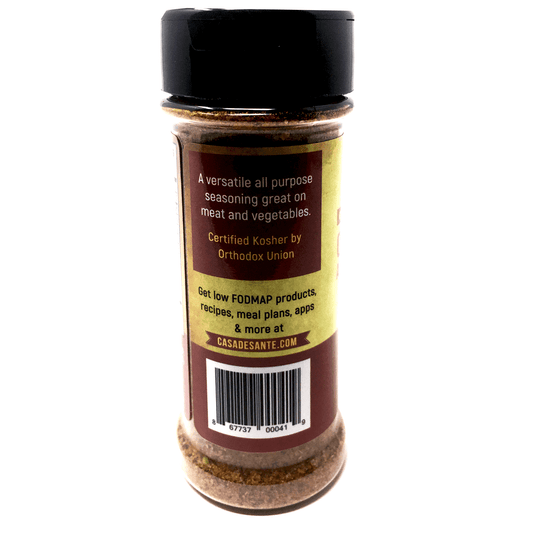Easy To Digest Nuts
Nuts are a great source of healthy fats, proteins, fiber, and essential vitamins and minerals. They make a fantastic addition to a healthy diet, but for some people, nuts can be difficult to digest. This can cause bloating, gas, and stomach discomfort. Fortunately, there are a number of nuts that are easier to digest than others. In this article, we'll dive into the benefits of nuts, how they are digested by the body, which nuts are easiest to digest, and how to incorporate these nuts into your daily diet.
The Health Benefits of Nuts
Before we dive into the specifics of nuts and digestibility, let's take a closer look at the health benefits of nuts. Nuts are a powerhouse of nutrition and come with a range of health benefits. They are an excellent source of natural proteins, unsaturated fats, and dietary fiber, all of which promote cardiovascular and digestive health. Additionally, nuts are rich in essential vitamins like vitamin E and minerals like magnesium. Furthermore, nuts are known to be very filling, which can make them a great snack option when trying to maintain a healthy weight.
Recent studies have also shown that consuming nuts regularly can help reduce the risk of developing chronic diseases such as type 2 diabetes, certain types of cancer, and Alzheimer's disease. This is due to the high levels of antioxidants and anti-inflammatory compounds found in nuts. Furthermore, incorporating nuts into your diet can also improve brain function and boost overall energy levels. So, next time you're looking for a healthy snack option, reach for a handful of nuts!
The Digestive System and Nut Consumption
When it comes to nut consumption, the digestive system plays a vital role in determining how healthy and beneficial nuts can be for your body. In order to unlock the full range of benefits that nuts provide, the body needs to be able to fully digest the nuts. This means breaking down the proteins, carbohydrates, and fats that make up nuts, so the body can absorb these nutrients properly into the bloodstream.
However, some people may have difficulty digesting nuts due to various reasons such as allergies, intolerances, or digestive disorders. In such cases, it is important to consult a healthcare professional before consuming nuts or nut-based products. Additionally, it is recommended to soak or roast nuts before consuming them as it can make them easier to digest and increase the bioavailability of nutrients.
The Science Behind Digestible Nuts
The science behind digestible nuts is all about the nutrient content. Some nuts contain more proteins, carbohydrates, and fats that are easier for the body to digest. For example, nut types that have higher fat content, such as almonds and hazelnuts, are easier for the body to digest than those with lower fat content like cashews and peanuts.
In addition to the nutrient content, the way nuts are prepared can also affect their digestibility. Roasting nuts can break down some of the complex proteins and carbohydrates, making them easier for the body to break down and absorb. However, over-roasting can also lead to the loss of some nutrients and make the nuts harder to digest.
It's also important to note that some people may have difficulty digesting nuts due to allergies or intolerances. In these cases, it's best to avoid nuts altogether or opt for alternative sources of nutrients.
Which Nuts Are Easier to Digest?
All nuts have varying degrees of digestibility depending on the person, but some nuts are generally easier to digest than others. Among the easiest to digest nuts are almonds and hazelnuts. They have a higher fat content and lower fiber content, which makes it easier for the body to process them. Other examples of relatively easy to digest nuts include macadamia nuts, pine nuts, and pecans. However, individual tolerances to nuts can differ greatly, so it's important to choose the nuts that are best for your body.
On the other hand, some nuts are harder to digest and may cause discomfort or digestive issues for some people. Cashews, for example, have a higher fiber content and can be difficult for some individuals to digest. Brazil nuts are also known to be harder to digest due to their high selenium content, which can cause gastrointestinal distress in some people.
It's important to note that the way nuts are prepared can also affect their digestibility. Raw nuts may be harder to digest than roasted or soaked nuts, as the roasting or soaking process can break down some of the harder-to-digest components. So, if you have trouble digesting certain nuts, you may want to try different preparation methods to see if that makes a difference.
How to Incorporate More Digestible Nuts into Your Diet
Now that we know which nuts are easier to digest, the next question is how to incorporate these nuts into your diet. The easiest way is to simply snack on them. Try having a mix of different nuts as a mid-morning or mid-afternoon snack. Additionally, nuts can be easily added to your favorite smoothie or salad for an added crunch. Of course, nut butters are another great way to incorporate more nuts into your daily diet.
Another way to incorporate more digestible nuts into your diet is by using them as a substitute for less healthy ingredients in your favorite recipes. For example, you can use almond flour instead of regular flour in baking recipes or use crushed nuts as a topping for your morning oatmeal instead of sugary granola. This not only adds a healthy twist to your meals but also helps you get the benefits of digestible nuts in a more creative way.
Nut Allergies and Digestibility
It's important to note that some people may be allergic to certain types of nuts. In some cases, these allergies can lead to digestive discomfort or more severe reactions. If you are allergic to a specific nut, it's important to avoid it. Additionally, some people with digestive sensitivity or gut issues may still experience discomfort when consuming even the easiest to digest nuts. It's important to listen to your body and choose the nuts that work best for you.
It's also worth noting that some nuts are more difficult to digest than others. For example, cashews and pistachios have a higher fat content and can be harder on the digestive system. On the other hand, almonds and walnuts are generally easier to digest. If you have a history of digestive issues, it may be helpful to stick to the nuts that are easier on your system.
Another factor to consider is the preparation of the nuts. Raw nuts can be harder to digest than roasted or soaked nuts. Soaking nuts in water overnight can help to break down the enzymes and make them easier to digest. Roasting nuts can also make them more flavorful and easier to digest, but be careful not to overdo it as high heat can damage the healthy fats and nutrients in the nuts.
The Best Types of Nuts for Gut Health
When it comes to gut health, not all nuts are created equal. High-fiber nuts like peanuts and pistachios can be harder to digest and may cause bloating and discomfort in some people. Conversely, low-fiber nuts like almonds and pecans are easier to digest and can be beneficial for gut health. These nuts contain an amino acid called glutamine that helps protect the integrity of the intestinal lining, which can lead to improved digestion and a healthier gut.
How to Choose High-Quality, Digestible Nuts
When shopping for nuts, it's important to choose high-quality nuts to ensure the best flavor and maximum nutritional benefits. Look for nuts that have a fresh, sweet smell and that are not rancid or stale. Additionally, try to avoid nuts that have been roasted in hydrogenated oils, as they can be high in unhealthy trans-fats. Buy nuts in small quantities and store them in an airtight container in the refrigerator for maximum freshness.
Pre-soaking Nuts for Improved Digestion
For those who still experience discomfort when consuming nuts, pre-soaking the nuts can help improve their digestibility. Soaking nuts in water overnight will help to activate enzymes that make the proteins and other nutrients more easily digestible. Additionally, soaking nuts can reduce the levels of anti-nutrients like phytic acid, which can inhibit the absorption of minerals in the body.
Delicious Recipes Using Easy-to-Digest Nuts
There are countless ways to incorporate easy-to-digest nuts into delicious recipes. A few ideas include almond-crusted chicken, hazelnut-brie spread, and pecan-crusted salmon. Try using easy-to-digest nuts like almonds, hazelnuts, and pecans in your baking or smoothies for an added nutritional boost.
Nutritional Comparison: Easy-to-Digest vs Difficult-to-Digest Nuts
While all nuts provide nutritional benefits, some nuts are easier to digest than others. Here's a comparison of the nutritional value of some easy-to-digest nuts vs. difficult-to-digest nuts:
- Almonds (easy to digest): Rich in protein, vitamin E, and healthy fats like monounsaturated and polyunsaturated fats.
- Cashews (difficult to digest): Rich in protein, magnesium, and copper, but have a lower fat content and may be harder to digest for some people.
- Hazelnuts (easy to digest): Rich in vitamin E, copper, and healthy monounsaturated fats. Additionally, hazelnuts have been shown to promote healthy cholesterol levels.
- Pistachios (difficult to digest): High in fiber, protein, and magnesium. Pistachios can be difficult to digest for some people due to their high fiber content.
Nutritional Value of Popular Easy-to-Digest Nuts
Here's a closer look at the nutritional value of some of the most popular easy-to-digest nuts:
- Almonds: 161 calories per ounce, 14 grams of fat, 6 grams of protein, 3 grams of fiber.
- Hazelnuts: 178 calories per ounce, 17 grams of fat, 4 grams of protein, 3 grams of fiber.
- Macadamia nuts: 204 calories per ounce, 21 grams of fat, 2 grams of protein, 2 grams of fiber.
- Pecans: 196 calories per ounce, 20 grams of fat, 3 grams of protein, 3 grams of fiber.
Can Eating Too Many Nuts Cause Digestive Issues?
While nuts are incredibly healthy, it is possible to eat too many of them, leading to digestive discomfort. This is because nuts contain a high amount of fiber and fat, making them a dense and filling food that can lead to stomach discomfort if eaten in excess. It's important to practice moderation and portion control when consuming nuts, as well as choosing the right type of nuts that work well for your digestive system.
Conclusion: Incorporating Easy-to-Digest Nuts into a Healthy Diet
Nuts are a fantastic source of essential nutrients and can be incredibly beneficial for your health, especially when consumed as part of a healthy diet. Opting for easy-to-digest nuts can help improve your body's ability to absorb these essential nutrients while reducing the discomfort that some people may experience when consuming nuts. Use the tips outlined in this article to incorporate easy-to-digest nuts into your daily diet and take advantage of all the benefits that they have to offer.
























